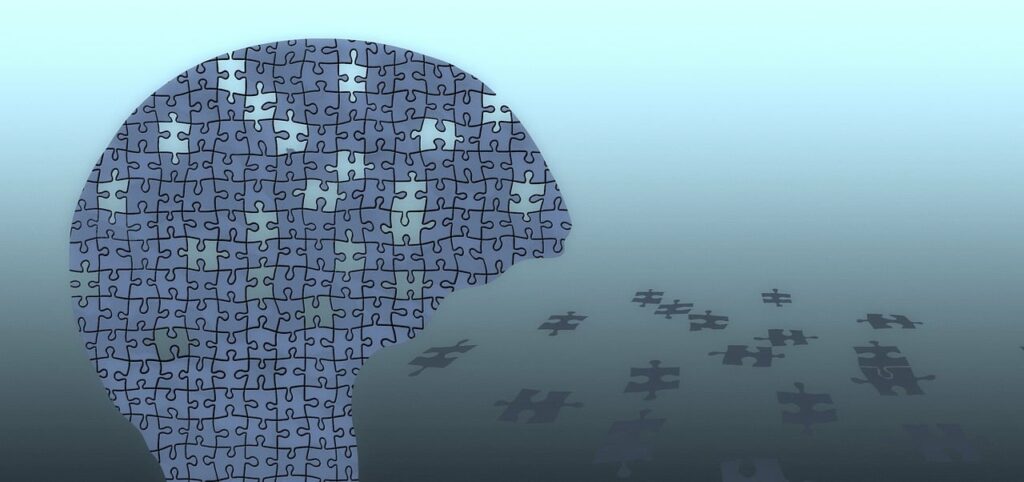
What symptoms accompany the symptoms of dementia?

What are the differences between forgetfulness in old age and the onset of Alzheimer's dementia?
The onset of Alzheimer's dementia is gradual. This is why relatives of ageing people often worry when something is forgotten from time to time. However, forgetfulness can be distinguished from dementia.

(Care of the elderly, 2016, Esther Matolycz, page 66-67)

What are the symptoms of dementia?
In principle, many different symptoms and symptom complexes can be observed.
The following symptoms may indicate the onset of dementia:
(Textbook Health and Nursing Assistance, 2019, ed. Sens-Dobritzsch, page 554)
In principle, many different symptoms and symptom complexes can be observed for dementia. Many different types of cognitive deficits are categorised and diagnosed by professionals. Three will be briefly discussed and defined here. These are repeatedly mentioned in the literature.

Concomitant diseases

Picture: geralt (pixabay)
The severe stage of dementia is often characterised by complete helplessness and dependence on the family and other people. The risk of concomitant illnesses is also increased and life expectancy is shortened. This is why dementia is accompanied by anxiety for those affected and their relatives. There is currently no absolute cure for dementia.
(Textbook Health and Nursing Assistance, 2019, ed. Sens-Dobritzsch, page 552)


